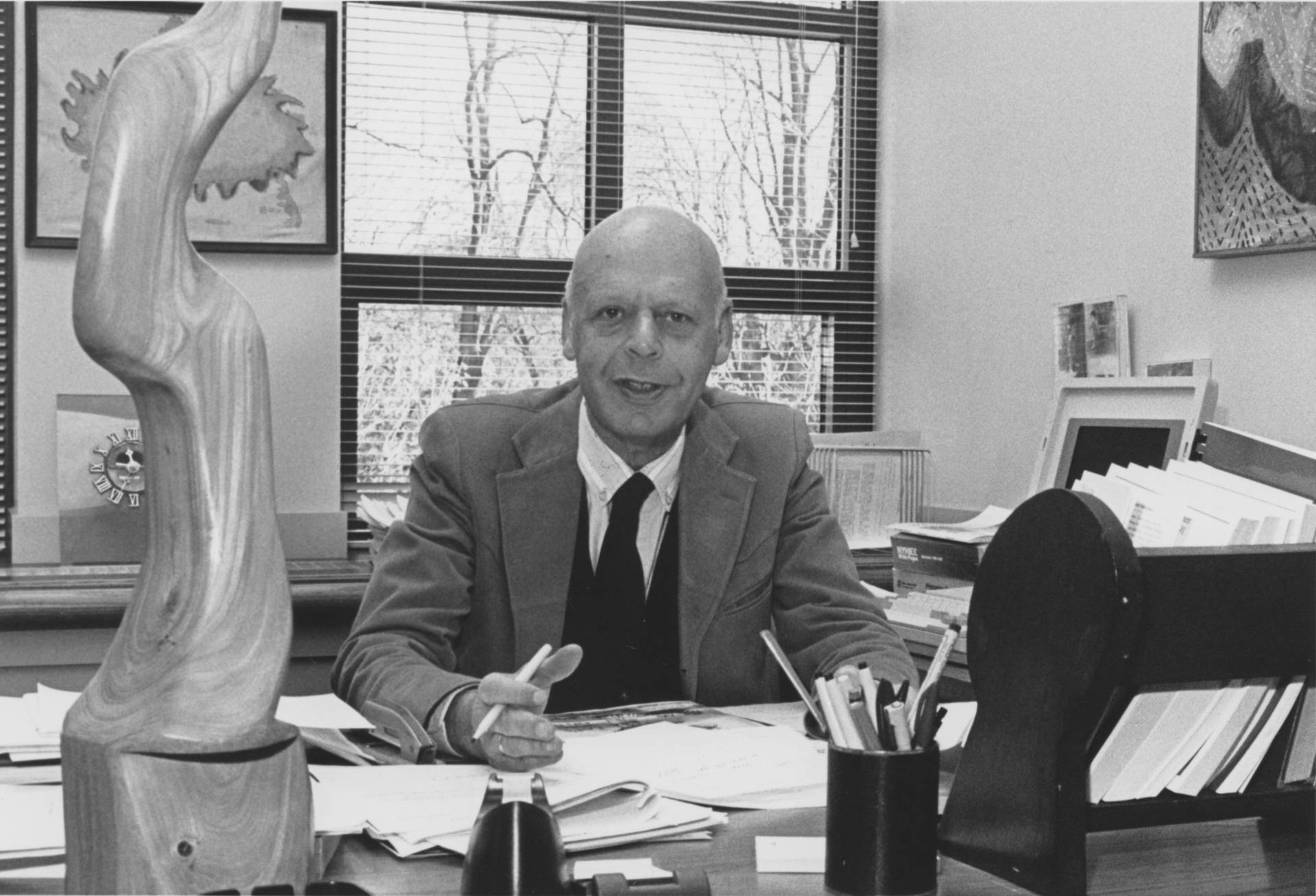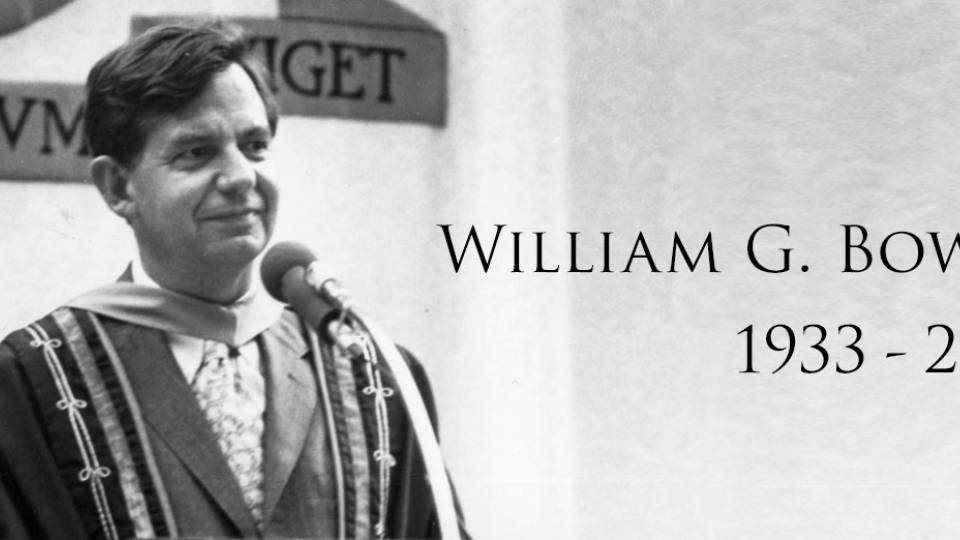
William Baumol, who died May 4, was the Joseph Douglas Green 1895 Professor of Economics, Emeritus, and senior economist at Princeton.
William Baumol, who made major contributions across a wide swath of economics and mentored two future Princeton University presidents, died Thursday, May 4, in New York. He was 95 years old.
Baumol was the Joseph Douglas Green 1895 Professor of Economics, Emeritus, and senior economist at Princeton, as well as the Harold Price Professor of Entrepreneurship and academic director of the Berkley Center for Entrepreneurship and Innovation in the Stern School of Business at New York University.
Baumol, who joined the Princeton faculty in 1949, conducted research on topics including industrial organization, regulation of industry, welfare economics, environmental policy and the economics of the arts. He was the author of more than 40 books and more than 500 articles in professional journals and newspapers. He transferred to emeritus status in 1992.
He might be best known for a concept that bears his name: Baumol's cost disease, which grew out of work he and William G. Bowen, later the 17th president of Princeton, conducted on the economics of the arts in the 1960s.
"They showed that slow-productivity-growth sectors face rising costs and prices compared to high-productivity-growth sectors," said Alan Krueger, the Lynn Bendheim Thoman, Class of 1976, and Robert Bendheim, Class of 1937, Professor in Economics and Public Policy. "This explains, for example, why college tuition and health care costs represent a rising share of our budgets."
Burton Malkiel, the Chemical Bank Chairman's Professor of Economics, Emeritus, and senior economist, cited Baumol's favorite example, "As Baumol liked to say: It still takes four musicians to play a string quartet, the same number as in Mozart's time." Meanwhile, productivity gains mean manufactured goods can be produced more cost effectively. So costs rise more quickly in fields that require lots of personally delivered labor, such as the arts, health care and education.
In a 2000 interview with Krueger, published in the Journal of Economic Perspectives, Baumol described how the concept came to him as he and Bowen examined budget information on arts groups.
"Then one night, it was 4:00 in the morning, I suddenly woke up and said I know why those costs are going up!" Baumol said. "I got up, wrote down a few notes, and went to sleep again. That's literally how it happened."
Baumol was born in 1922 in New York City and, according to the interview with Krueger, knew he wanted to be a professor of economics by age 17. He earned his bachelor's degree from the City College of New York and his Ph.D. from the University of London. He was a junior economist for the U.S. Department of Agriculture and an assistant lecturer at the London School of Economics before joining the Princeton faculty. He joined the faculty at New York University in 1971 while continuing his Princeton appointment.
His most recent books include "The Cost Disease: Why Computers Get Cheaper and Health Care Doesn't" (2012); "Economics: Principles and Policy, 12th Edition" (with Alan Blinder, 2011); "The Microtheory of Innovative Entrepreneurship" (2010); and "The Invention of Enterprise: Entrepreneurship from Ancient Mesopotamia to Modern Times" (2010).
Baumol was the former president of the American Economic Association, the Association of Environmental and Resource Economists, the Eastern Economic Association, and the Atlantic Economic Society. He received 12 honorary degrees, including one from Princeton in 1999, and was a member of the National Academy of Sciences, the American Philosophical Society and the British Academy.
Asked to identify themes that run through his work, Baumol told Krueger that he always focused on applied theory.
"I'm interested in economics not as pure abstraction, but how it can help eliminate poverty, how it can help deal with all the problems we know and recognize," he said. Having come up with an abstract concept, Baumol said he would almost always follow up by asking, "Well, what can you do better with it that you couldn't do without it?"
Baumol was regarded as a gifted teacher and mentored Bowen, Harold T. Shapiro, who would become the University's 18th president, and Malkiel during their doctoral studies.
"One could not have asked for someone who was more caring and more willing to help on any issue that I had," Malkiel said. "This was certainly true for what he would do for the department, the teaching program and the University in general."
Baumol didn't limit his teaching to economics. A gifted painter and sculptor, he also taught a course in wood carving at Princeton.
Baumol is survived by his wife of 75 years, Hilda, daughter Jasmine and her husband Jim Wolf, son Daniel and his wife, Sabrina Lee, and two grandchildren.
Memorial contributions, in lieu of flowers, can be made to Planned Parenthood.
View or share comments on a blog intended to honor Baumol's life and legacy.

